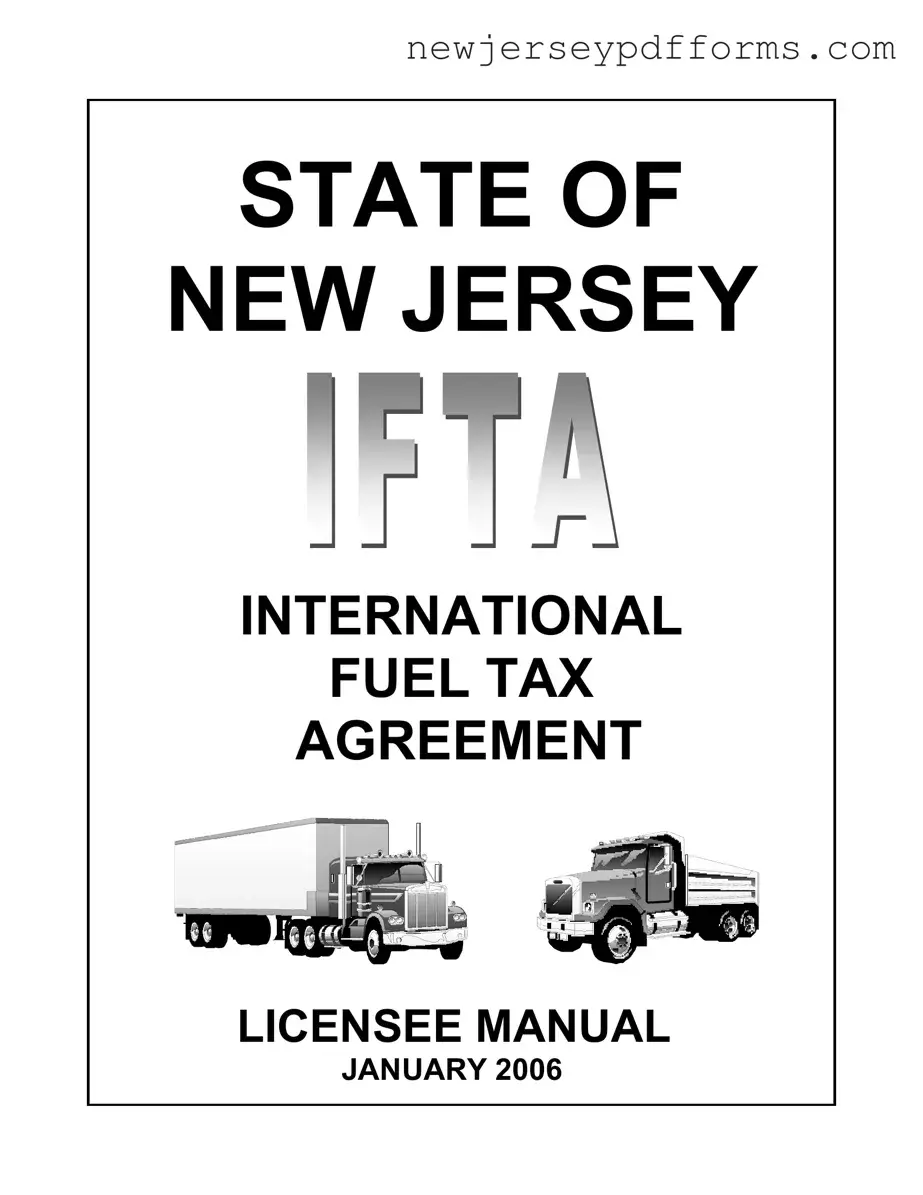What is the purpose of the NJ IFTA form?
The NJ IFTA form is used to apply for an International Fuel Tax Agreement (IFTA) license. This agreement simplifies the reporting of fuel taxes for motor carriers operating in multiple jurisdictions. By obtaining an IFTA license, carriers can travel across IFTA member jurisdictions with a single set of credentials and report fuel taxes quarterly.
Who qualifies for an IFTA license in New Jersey?
To qualify for an IFTA license in New Jersey, a carrier must maintain operational control and records for qualified motor vehicles in the state. The vehicles must travel on New Jersey highways and the carrier must operate in at least one other IFTA member jurisdiction. Additionally, the vehicles must meet the definition of qualified motor vehicles, which includes those exceeding certain weight limits or having multiple axles.
What are the benefits of having an IFTA license?
An IFTA license offers several advantages. It allows carriers to file one quarterly tax report instead of multiple reports for each jurisdiction. Carriers also receive one set of credentials, which includes a license and decals, simplifying compliance. In most cases, only one audit is conducted by the base jurisdiction, saving time and resources for the carrier.
How do I apply for an IFTA license in New Jersey?
To apply for an IFTA license, complete the application form and submit it to the New Jersey Motor Vehicle Commission. Include proof of your principal place of business. Ensure that all information is accurate and complete, as misrepresentations may lead to denial. If your fuel use tax account is delinquent or if your license has been suspended or revoked in another jurisdiction, you will not receive credentials.
What fees are associated with the IFTA license?
The IFTA license and decals are renewed annually. The cost for decals is $10 per set. Refunds are not available for excess orders or mistakes in ordering. It is important to plan accordingly to avoid unnecessary expenses.
What are the requirements for displaying IFTA decals?
Each qualified motor vehicle must display two IFTA decals—one on the passenger side and one on the driver's side of the power unit. Proper display is crucial; failure to do so may result in the need to purchase a trip permit and incur fines. If a vehicle is sold or leased, the decals must be returned or recalled as necessary.
What is a temporary IFTA permit?
A temporary IFTA permit is issued to carriers while they wait for their permanent decals. This permit is valid for 30 days and must be carried in the qualified motor vehicle. It is specific to the vehicle and is available only to currently registered IFTA carriers.
What should I do if I need to operate without an IFTA license?
If a carrier qualifies for an IFTA license but chooses not to participate, they must obtain trip permits to travel through member jurisdictions. These permits allow temporary operation without the full IFTA credentials but must be purchased in accordance with each jurisdiction's regulations.
How long do I need to keep records related to IFTA?
Carriers are required to maintain accurate records of mileage and fuel purchases. These records must be kept for a specified retention period, typically several years, to ensure compliance and facilitate audits if necessary. Proper record-keeping is essential for accurate reporting and tax compliance.

